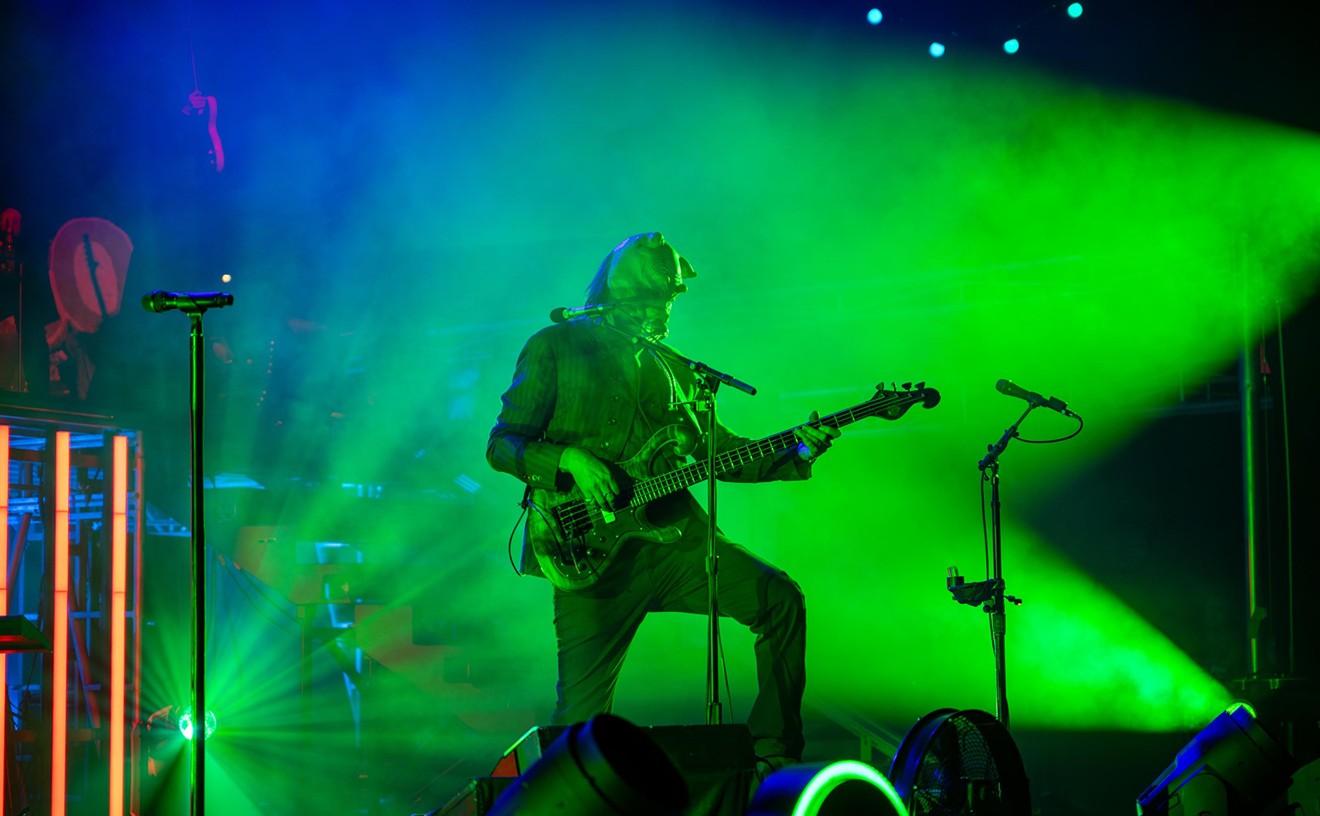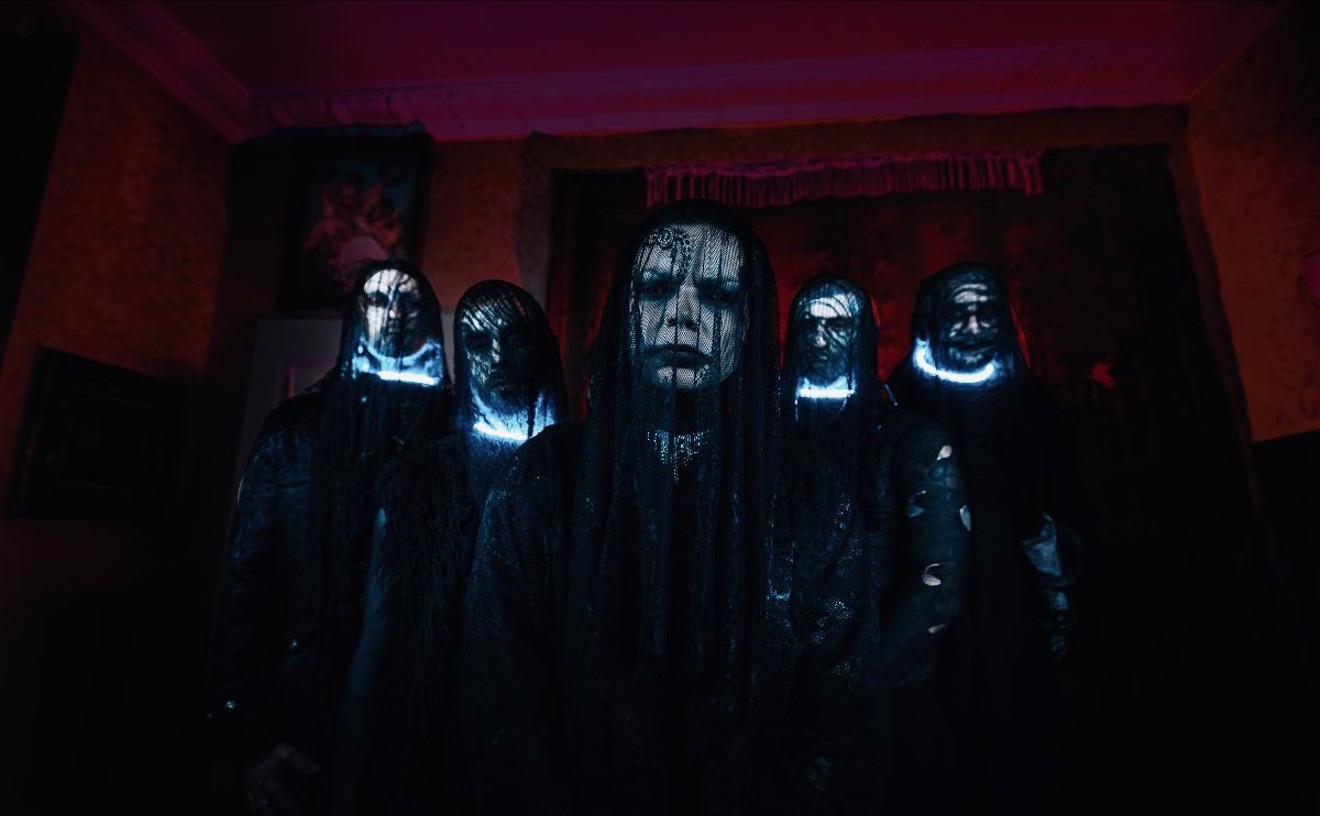What is Muster Station, and what is its significance to this record?
Paul Saulnier: Muster Station is a place on a boat where passengers meet to get on lifeboats when the boat is sinking. It's kind of how I feel most of the time. There's a lot of anxiety in my songs. I try to organize myself while everything is sinking is kind of what it's like. In my hometown of Kingston, Ontario, there's an island attached to it called Wolf Island. There's a free ferry, and I go there a lot. The ferry would take half an hour, and the album is a half hour long. That's kind of where I go to clear my head and write my songs. The album is dedicated to that.
How does a two piece make such a huge sound?
When we play live, I play a bass keyboard that sits on the floor. It's kind of like the bottom of an organ. I play it while I play guitar and sing and throwing in bass notes is what gives us a big sound live. The guitar, of course, is screaming loud, and Ben is pretty hard-hitting drummer. On the album I also throw in electric organ.
You're from Kingston, Ontario? What is it like living there, and what kind of climate exists there as it relates to you being in a band and being creative?
There's a pretty big university in Kingston so there's always a couple thousand young people moving to that town every year. I end up making a lot of new friends all the time, because, for every few thousand kids, there are a few really good musicians and pretty good artists. Because I'm a local and I do what I do, I end up meeting them. I get inspired by some of the people I meet.
It's a small town, and I can walk everywhere. You get so familiar with everything, it becomes a part of you. Everything that happens to me on an emotional level affects my songs. And there's a song connection between my emotional well-being and a physical place that I'm at. I can walk down any street in Kingston and give you a life history.
There's a couple of good bands we're friends with and even though we're different genres, we support each other. There's a band called the Gertrudes and another in which I play drums called False Face. It's a noise, pop sort of band. I think it's a pretty nice place to live, and it's small and not too crazy.
The Eye Weekly said that you shred "like Yngwie Malmsteen." Is there a classical music underpinning to your songwriting, and was that guy at all an influence?
I think that was just a random thing that they said. I have the album Rising Force on vinyl, and I've listened to it maybe three times in my life. I think he's amazing, but I don't writing guitar solos anywhere near the way he does. No classical undertones. If you want to get technical, my guitar soloing is rooted in my obsession with a major scale. It's pretty simple and not all that complex. I read that you and Ben were initially rivals of a sort. How did you bridge that gap and come to work together, and what do you think Ben brings to this project?
Not rivals. Our friendship fully happened over time. When you have a small town scene and there's two "cool dudes," there can be some undeserved animosity, I guess, at first. Ben and I are both pretty shy and quiet. It took mutual friends who knew us well to get us to hang out. Then we discovered we had a lot of musical tastes in common, and we started jamming, and it worked out really well.
Benjamin's beats have a strong metronomic sense to them. They push the songs pretty hard. Which is good, because my songs before were all over the place. His drumming reigns that in. He helps make sense of what I'm doing and it fits together really well.
What was it that propelled you from being what many would refer to as a "local" band to one that tours at least in North America?
There was always a desire to tour, but I had my sights set pretty modestly. I just wanted to hit up Toronto, Ottawa and Montreal -- the cities that surrounded us. We were pretty happy doing that and playing small shows. But it wasn't until we met Diamond Rings and he wanted to put out a split 7-inch with us last summer.
He got a lot of attention from Pitchfork and stuff, and because we were on that same record, we got some attention too. That's what exposed us to the world outside our southern Ontario existence. It was kind of a wake-up call and opportunity at the same time. It was like, "We got noticed in the big leagues, and we can take that as far as we can." It's worked out pretty well so far.
The artwork for Meet Me at Muster Station looks like a field of stars? Is it related to the song "Starfield" why did you go with that artwork instead of something based on a different song?
Kind of. It's sort of running theme in the band even outside of that song. I don't know if you've seen the "Starfield" 7-inch cover. It has the same thing, but it's pink and purple and there's a face and triangles and that sort of thing.
Benjamin designs everything, so I think he brings to the band that sort of aesthetic. He took that cover and wanted to make it look more mature and solid. It was a table cloth I have in my house. It's white with black paint specks all over it. He scanned it and made a silkscreen out of it.
The name of your band sounds like you could be indie pop or something like that. How did you come up with that name?
The name of the band was kind of a joke started by a friend of mine several years ago. My initials are "PS," and my friends call me "PS," so it's kind of an inside joke. It's pretty self-indulgent but also self-deprecating at the same time.
You have that song "Meet Me at Muster Station" at the beginning of the album and then part two of that song at the end of the album. Why two parts?
It refers to people meeting at the muster station and the boats eventually going to sink. Part two is when the boat is sinking, and we used samples of boat engines at the end of the song with guitar mixed in. The album is the exact time as it takes to cross to Wolf Island with the ferry. It's like this boat is sinking and let's party the fuck out of it before it does, pretty much. It's kind of a metaphor for every relationship I've ever been in, hence the "Love You" theme.











